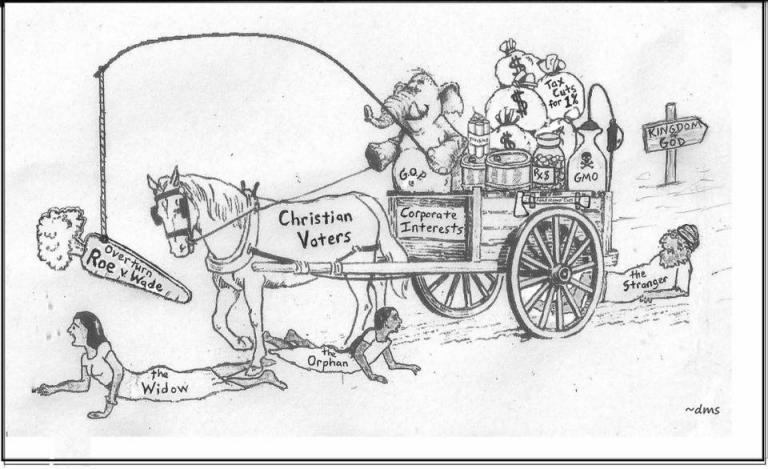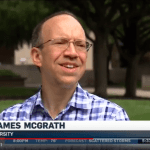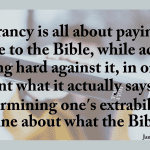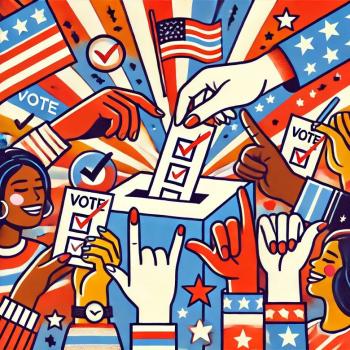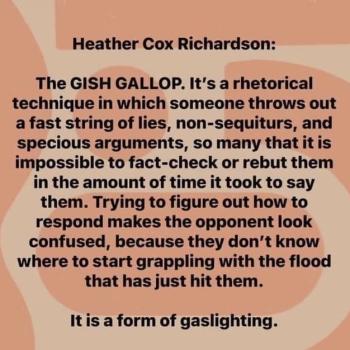A number of blog posts and articles have converged on aspects of Evangelical culture and identity in ways that I think it will be useful to bring into conversation with one another.
The post that got me thinking about these connections is about “Hobby Lobby Evangelicalism” and consists mostly of an ethnographic account of visiting the store. Here’s a quote from the post that particularly jumped out at me:
George Marsden once defined evangelicalism as “anyone who likes Billy Graham.” I’ve always liked that definition, since it gets at the idea of evangelical identity. A few years back, I toyed with updating that definition to “anyone who shops at a Christian bookstore.” It seemed to me that American evangelicalism was as much a consumer culture as it was a group of people who ascribed to a certain set of beliefs. If evangelicalism today is as much an identity as a theology, I think it makes sense to pay attention to how consumption constructs that identity.
Anyone who has studied culture will know that aspects of a culture will seem strange to an outsider but make sense within the network of values and assumptions that underpin it and are intertwined around it. An example was mentioned in a post about understanding Evangelical opposition to abortion:
Contraception is about preventing pregnancy. Christians who regard abortion as murder ought to celebrate contraception. Not only do relatively few of them do so, but some actually oppose contraception. We atheists are fond of pointing out how little sense this makes. If you were serious about preventing what you regarded as murder and had effective ways of doing so, why would you oppose them?
I suspect most of us realize that this is not really about abortion. At least, it is not only about abortion. It is also about embarrassingly puritanical views of sex as being dirty and immoral unless it happens with the goal of producing a child. When you encounter a “pro-life” Christian who opposes contraceptive methods, you are likely dealing with someone who holds these views of sex. Sex for pleasure without any intention of producing a child is something that such a Christian will almost certainly regard as “sinful.”
For many of these Christians, I suspect that the primary concern is over what they perceive as promiscuity. They oppose abortion, at least in part, because they see it as a free pass for the promiscuous. A couple of heterosexual teenagers have sex, and the woman gets pregnant. It is an unwanted pregnancy, but if we (i.e., society) provide her with a safe and accessible alternative to giving birth, we are enabling others to be promiscuous by removing the consequences. Contraception does the same thing. Permissive attitudes toward sex do the same thing…
If I’m right about any of this, I suppose it might help to unravel the apparent inconsistency over how many in the “pro-life” crowd are equally adamant in their support for the death penalty or in their opposition to social assistance programs. This isn’t about the “sanctity of life” at all; it is about the fear that protecting people from some of the more dire consequences of their actions will lead to widespread moral decay. The promiscuous teenagers, the inmate on death row, the family living in poverty – all must suffer so that others do not do follow their example. It doesn’t really matter that some may be in the situation they are in through no fault of their own. There is little room for empathy here. Jesus would be so proud.
Steve Wiggins’ post about the humorous fact that Google provide the Quaker Oats logo as though it were the symbol of the Quaker religion also seems relevant to the way religious identity, consumer products, and the internet coincide or at times perhaps conflict in interesting ways…
See also:
http://www.patheos.com/blogs/lovejoyfeminism/2018/08/the-new-evangelical-litmus-test/
http://www.patheos.com/blogs/lovejoyfeminism/2018/09/evangelicals-have-long-pursued-political-power/
https://www.redletterchristians.org/when-christians-sell-out-christians-for-political-power/
http://www.patheos.com/blogs/lovejoyfeminism/2018/09/a-categorization-of-evangelical-ideas-about-gender-roles/
Sunday is Not the Main Event: A Practice-Based Christianity (Aaron Niequist)
See too Fred Clark’s posts on the “MAGA Commission.”
